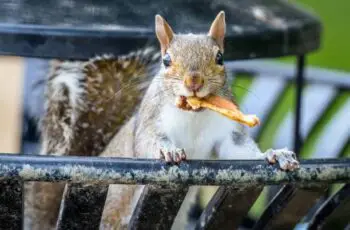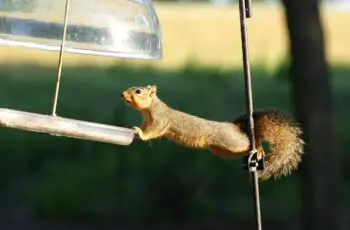There is a definite mating season for raccoons, and it usually falls between January and March, in late winter or early spring. Male raccoons become more active and begin searching for possible partners during this period. They frequently traverse large territory and may encounter competition from other males while traveling great distances in quest of a compatible mate. Male raccoons use a variety of courting techniques to entice females, including vocalizing, marking their territory with urine, and even fighting with other males. For raccoons, the success of reproduction and the survival of their progeny depends heavily on the mating season. Just like raccoons have a specific season for mating and choose a perfect mate for themselves, they make specific sounds while mating.
What sounds do raccoons make when they mate?
Raccoons are extremely unique animals in their behavior. In mating time, male raccoons produce a range of high-pitched vocalizations, like chirps or squeals, during the mating season. Their fur will frequently rustle in response to these vocalizations, and they will frequently make a monotonous chattering sound. Female raccoons may reply with quiet purring or trilling sounds to express their interest. When raccoons mate, they produce distinctive noises that may be heard all night and are frequently fairly loud.
More specifically, male dominance and the attraction of mates are greatly aided by these vocalizations. However, the duration and intensity of the noise might vary. Raccoon populations are engaged in breeding activities. A vital component of raccoon courtship, these unique vocalizations enable individuals to communicate with their targets and form reproductive alliances.
A male raccoon will perform several courting rituals in an attempt to impress a female after he has successfully attracted her. Play-fighting, chasing, and grooming are all part of these routines. The female initiates copulation, usually in trees or other high places, once she is ready to mate. The mother gives birth to a litter of two to five pups after a gestation period of around sixty-three days following mating. The male raccoon plays no part in parenting or caring for the young. For raccoons, the mating season is crucial because it guarantees the survival of their genetic line and the continuation of their species.
Raccoons Mate Season?
Is it true that raccoons are currently in their mating season? I sure didn’t. Perhaps you’ve heard raccoon battles breaking out in your alleyway or garden. Since last autumn, I have not seen a raccoon other than the ones under the wildlife center’s care. Male raccoons that have fought with other males are bringing in scars and abscesses on their backs to the wildlife center. They battle! It was not merely a show of aggressiveness to scare away the other man. They battle over a female by biting, scratching, and even biting each other.
- How to know a raccoon is pregnant
- How to Safely Clean a raccoon latrine
- How to install macOS Sonoma on VirtualBox on Windows
Although the precise date varies based on the species and region, raccoons normally mate in late winter or early spring. During this period, male raccoons may vocalize and fight in an attempt to get access to females. Trees and other high places are common places for mating.
For raccoons, the gestation period lasts around sixty-three days. Typically, female raccoons give birth to a litter of two to five kits; however, bigger litter has been seen. For the first several months of their existence, the kits—who are born blind and deaf—rely only on their mother for care and safety. Also, learn about how to know a raccoon is pregnant.
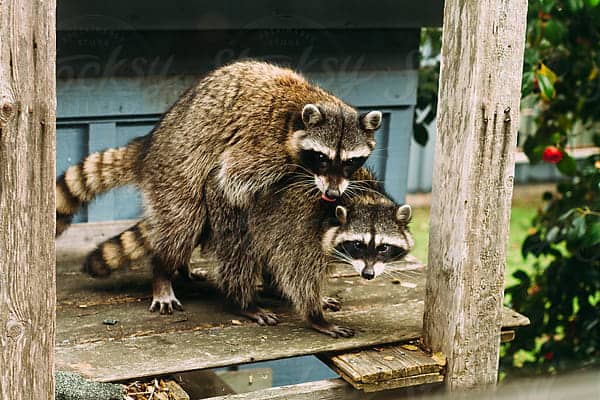
raccoon mating
How long do raccoons mate?
The mating season for raccoons is relatively short, lasting only a few weeks in the late winter or early spring. Male raccoons actively seek out female companions during this period, which is known as the mating season. Individuals engage in playfighting and chasing during mating activity. After a female has been successfully courted, the pair will mate several times over a few days. Following this, the male normally departs, and the female gets ready for her litter one to be born, which usually happens in the early summer. When compared to other mammalian species, raccoons’ mating season is often brief, yet it is essential to their ability to procreate.
Do raccoons have one mate?
Given their reputation for cunning and mischievous behavior, do raccoons only ever mate once? No, is the response. Raccoons are not monogamous creatures; they do not have a lifelong partner. They are regarded as polygamous, which means they have several sexual partners. Their innate instincts and survival techniques are to blame for this. Being opportunistic creatures, raccoons will mate with any available partner, sometimes even having many mates at once. Nevertheless, during mating season, they do establish transient pair bonds and will mate for a brief period with the same partner. In the end, raccoons don’t have a single partner; instead, they follow their instincts and modify their lifestyle to survive.
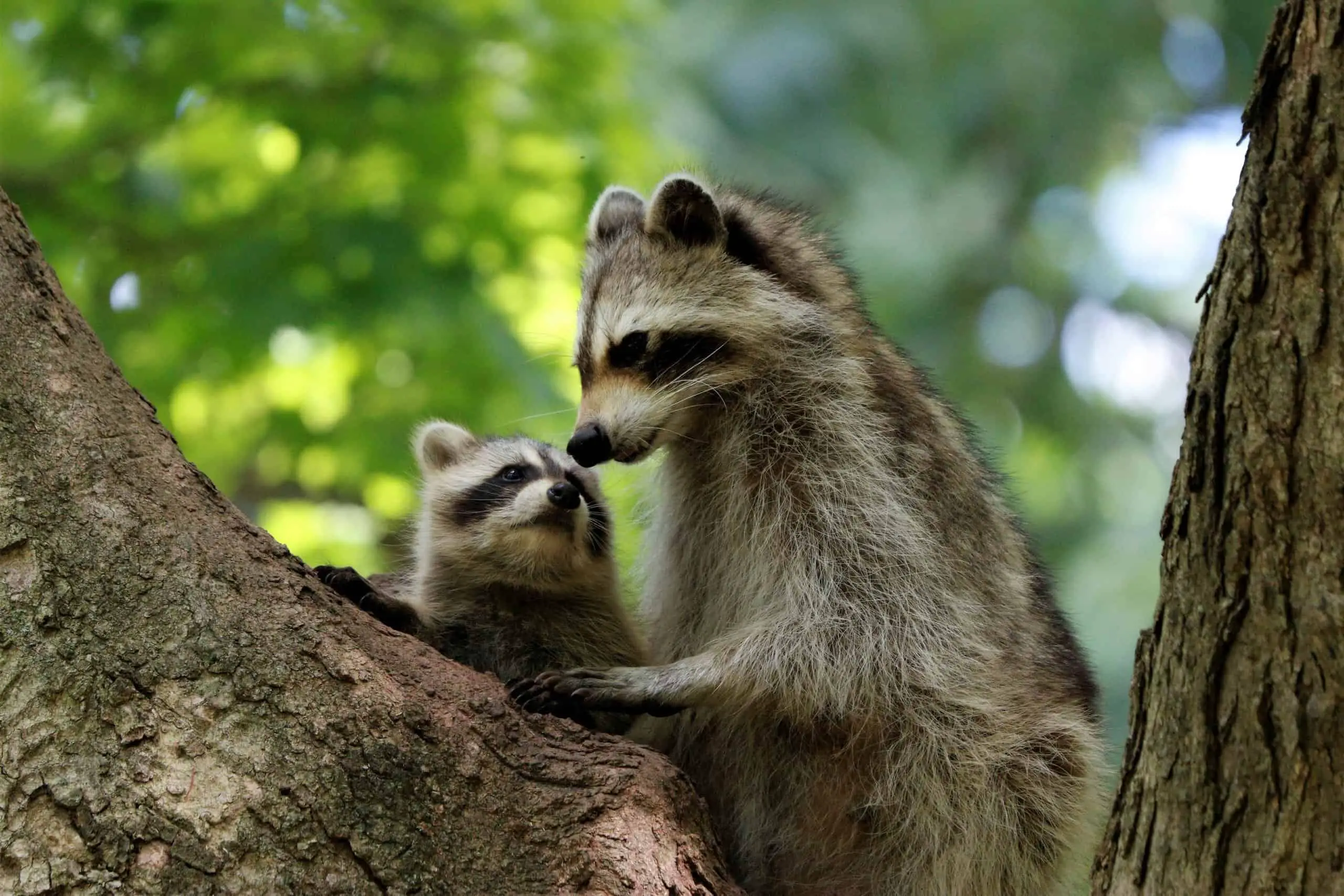
raccoons making love
Do raccoons stay with their mates?
Raccoons do not have a lifelong partner since they are not monogamous creatures. Instead, because both males and females mate with several partners during their breeding season, they are thought to be polygamous. Males and females usually do not create a permanent pair connection after copulation, instead going their ways. On the other hand, a male raccoon may temporarily live with a female and her young to assist in providing for them if food and resources are plentiful. Raccoons generally do not remain with their partners in the conventional sense, yet under the right circumstances, they could temporarily bond.
How many times do raccoons mate in a day?
It has been noted that raccoons, who are renowned for their sly and mischievous ways, mate several times a day. Raccoons can mate up to 10 times in 24 hours; however, the precise number varies. Environmental elements such as the availability of food, the state of the weather, and the receptivity of the female raccoon to mating all have a significant impact on this behavior. Throughout their mating season, which usually lasts from late winter to early spring, male raccoons will actively search for and mate with several females. Raccoons can have up to six litters of babies every year, with an average reproductive rate of two to six per litter. Their excellent species survival can be attributed in large part to their flexibility and prolific mating activity.
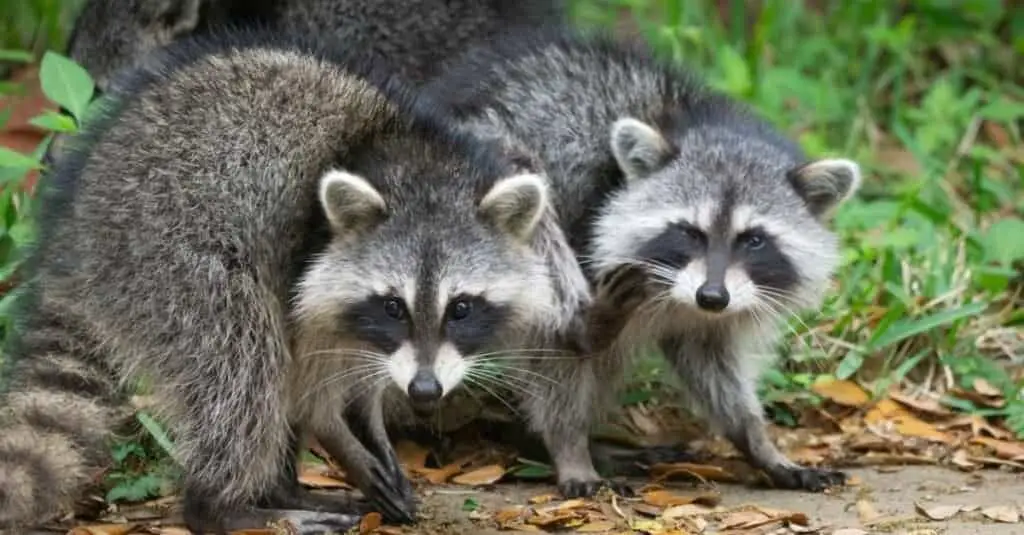
Raccoon mating
FAQ
1. Do raccoons sound like cats?
The sound of battling raccoons is like that of fighting cats. Every sound has a distinct purpose in communication. However, it might be challenging to tell them apart from other wild creatures. They sound a lot like other animals when they vocalize.
2. Why do raccoons make a chirping sound?
Raccoons make high-pitched chirping sounds when they are hungry or feel disturbed. However, the mother raccoon’s weeping sounds usually happen at night when she departs.
3. Do raccoons make a screaming noise?
A raccoon may scream out of aggressiveness, as in an attempt to frighten off another raccoon, or out of delight, as in when they discover food. Because raccoons are nocturnal animals, they also scream during the mating season, which frequently occurs at night.
Conclusion
To sum up, raccoons have a unique mating season that usually takes place in late winter or early spring. The ladies react to this with low grunts and trills, while the males emit high-pitched vocalizations. A raccoon’s mating procedure can take several hours or days, and during this period, they frequently have more than one mate. They do, however, create strong pair connections and frequently remain with their partner throughout the mating season. Raccoons frequently mate several times in a day, while the frequency of mating might vary. Raccoons are intelligent, adaptable animals, and their intricate and distinctive mating habits are a testament to this.

